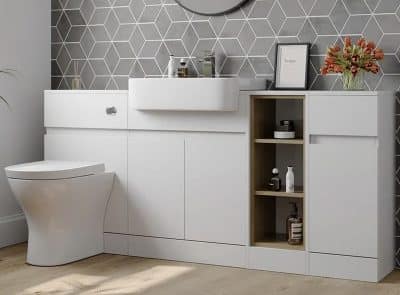
In the contemporary era, the urgency to adopt sustainable practices has permeated various sectors, including the Heating, Ventilation, and Air Conditioning (HVAC) industry. As environmental awareness escalates, a growing consensus exists on redefining HVAC solutions to align with eco-friendly living principles. This transition addresses the ecological concerns and paves the way for more efficient and cost-effective home and commercial building management systems.
This article delves into refining HVAC solutions for eco-friendly living.
The Evolution of HVAC Systems
The evolution of HVAC systems reflects the remarkable journey from basic to advanced methods in managing indoor environments. Initially, ancient civilizations utilized simple techniques, such as using ice, water, and natural ventilation to moderate temperatures. Over centuries, these practices evolved into more complex systems, incorporating fans, ducts, and, eventually, electrical components, leading to today’s highly automated and efficient HVAC units.
Despite these advancements, the progression has not been without environmental repercussions, primarily from excessive energy demands and the deployment of harmful refrigerants that exacerbate global warming issues. The modern era presents a critical juncture, urging a shift towards eco-friendly innovations that retain operational excellence while significantly reducing the ecological footprint of HVAC systems.
Integrating Sustainability into Heating and Cooling Solutions
The integration of sustainability into heating and cooling solutions marks a critical step in this transformation. Manufacturers and engineers increasingly focus on developing HVAC systems that minimize energy consumption and reduce greenhouse gas emissions. This involves using renewable energy sources, such as solar and geothermal power, and implementing energy-efficient technologies.
Additionally, the emphasis on smart technologies and IoT-enabled devices allows for more precise control and monitoring of HVAC systems, further enhancing their efficiency and sustainability.
Advances in Energy-Efficient Technologies
The surge in energy-efficient technologies within the HVAC sector marks a transformative era aimed at sustainability. Innovations like Variable Refrigerant Flow (VRF) systems have altered the landscape by offering superior energy efficiency through variable motor speeds that precisely adjust cooling and heating loads.
Similarly, inverter technology in HVAC systems modulates the electrical current to compressors, drastically reducing energy consumption and enhancing system longevity. Heat recovery ventilation systems further exemplify this advancement by capturing waste heat from exhaust air to precondition incoming fresh air, thereby minimizing the energy required for heating or cooling.
The integration of smart thermostats and building automation systems has been a game-changer, enabling users to fine-tune their environments for optimal comfort and energy usage.
The Role of Sustainable Materials and Practices
The conscientious selection of materials and adoption of green practices are central to the eco-friendly evolution of HVAC systems. The industry is transitioning towards materials that have a reduced impact on the planet, with a notable shift to using recycled plastics and metals in manufacturing processes, thereby lessening the demand for virgin resources and reducing waste. The choice of refrigerants is also undergoing a significant overhaul, with a clear preference for substances that have a lower Global Warming Potential (GWP), mitigating the adverse effects of climate change.
Sustainable practices extend beyond material selection, encompassing the entire lifecycle of HVAC systems. This includes environmentally responsible installation techniques, maintenance routines prioritizing energy efficiency, and the recycling or proper disposal of systems at the end of their useful life. Such practices reduce the environmental footprint of HVAC systems and set a precedent for responsibility in the broader industry.
The Impact of Regulatory Frameworks and Standards
Regulatory frameworks and standards are pivotal in steering the HVAC industry towards sustainability. Governments and international bodies are crafting rigorous policies that mandate energy efficiency and environmental stewardship in HVAC design, installation, and operation. These regulations serve as a driving force, compelling the industry to embrace greener technologies and practices. For instance, standards specifying minimum efficiency ratings for heating and cooling units push manufacturers to innovate and surpass these benchmarks, fostering a competitive environment that benefits both the planet and consumers.
Moreover, regulations concerning refrigerants with high GWP are prompting a shift towards more eco-friendly alternatives, reducing the ozone-depleting and global warming impact of HVAC systems. These regulatory measures ensure that new HVAC installations are more sustainable and encourage retrofitting existing systems to meet higher environmental standards, collectively advancing the industry towards a greener future.
Educating Consumers and Professionals
A crucial aspect of promoting sustainable HVAC solutions is educating consumers and professionals about the benefits and importance of eco-friendly practices. This involves raising awareness about the environmental impact of traditional HVAC systems and the potential savings and benefits of adopting sustainable alternatives. Training programs for HVAC professionals are also essential to ensure they have the knowledge and skills to install, maintain, and advocate for sustainable systems.
The Future of Sustainable HVAC
Looking ahead, the future of sustainable HVAC is promising, with continuous innovations and a growing commitment to environmental stewardship. The increasing integration of renewable energy sources, coupled with advances in technology and materials science, is set to redefine the standards for eco-friendly heating and cooling solutions.
Moreover, as public awareness and regulatory pressures mount, the demand for sustainable HVAC systems is expected to rise, further accelerating the industry’s green transformation.
Takeaway
The journey toward sustainable comfort in the HVAC sector is a multifaceted endeavor that requires the collective efforts of manufacturers, regulators, professionals, and consumers. People can significantly reduce their environmental footprint by redefining HVAC solutions to be more eco-friendly while still enjoying the comfort and convenience of these systems. The transition to sustainable HVAC practices is not merely a trend but a necessary shift towards a more responsible and efficient approach to heating and cooling the spaces.








